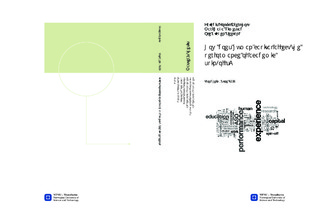How does human capital affect the performance of academic spin-offs?
Abstract
Article 1: Investigates the field of academic spin-offs. This type of spin-offs commercialize research results from research institutions and are believed to be a source of wealth creation. Even though academic spin-offs have high survival rates they rarely grow into high performing ventures. Furthermore, performance of young academic spin-offs is closely linked to their human capital as they often have limited resources. Through a structured literature search we investigated how different types of human capital affect the performance of ASOs. A synthesis of the articles from this search indicated that four different operationalizations of human capital are commonly used to investigate the performance of academic spin-offs, namely work experience, education, presence of an academic founder and team heterogeneity. We found indications that different types of human capital is needed in different stages of spin-off development. We provide a set of hypotheses that we encourage other researchers to test empirically.Article 2: Commercializing of technology from academic institutions through the establishment of academic spin-offs is gaining increased attention from scholars and policy makers. This article focuses on the human capital of the top management team in academic spin-offs, in particular that of the chief executive officer. Through synthesizing existing literature on human capital and academic spin-off performance a set of hypotheses was put forth, building on the previous work of Bjerkholt et al. (2014). These investigate the relation between different types of work experience and education present in the top management team, and their effect on ASO performance. We also explore whether the presence of an academic founder (inventor) affect performance positively. By performing a comprehensive quantitative study on 100 Norwegian academic spin-offs we were able to test the support for these hypotheses. We found that managerial experience affects performance positively. Even more significant and positive was the effect of managerial education. Surprisingly, we found that the presence of PhD degrees had a positive and moderately significant effect on performance. With regards to academic founders, we found that academic founders possessing commercial knowledge have a positive effect on performance. Our results are of interest to entrepreneurs, investors, technology transfer offices and policy makers as they indicate that some types of human capital are more important than others in spin-off development.
